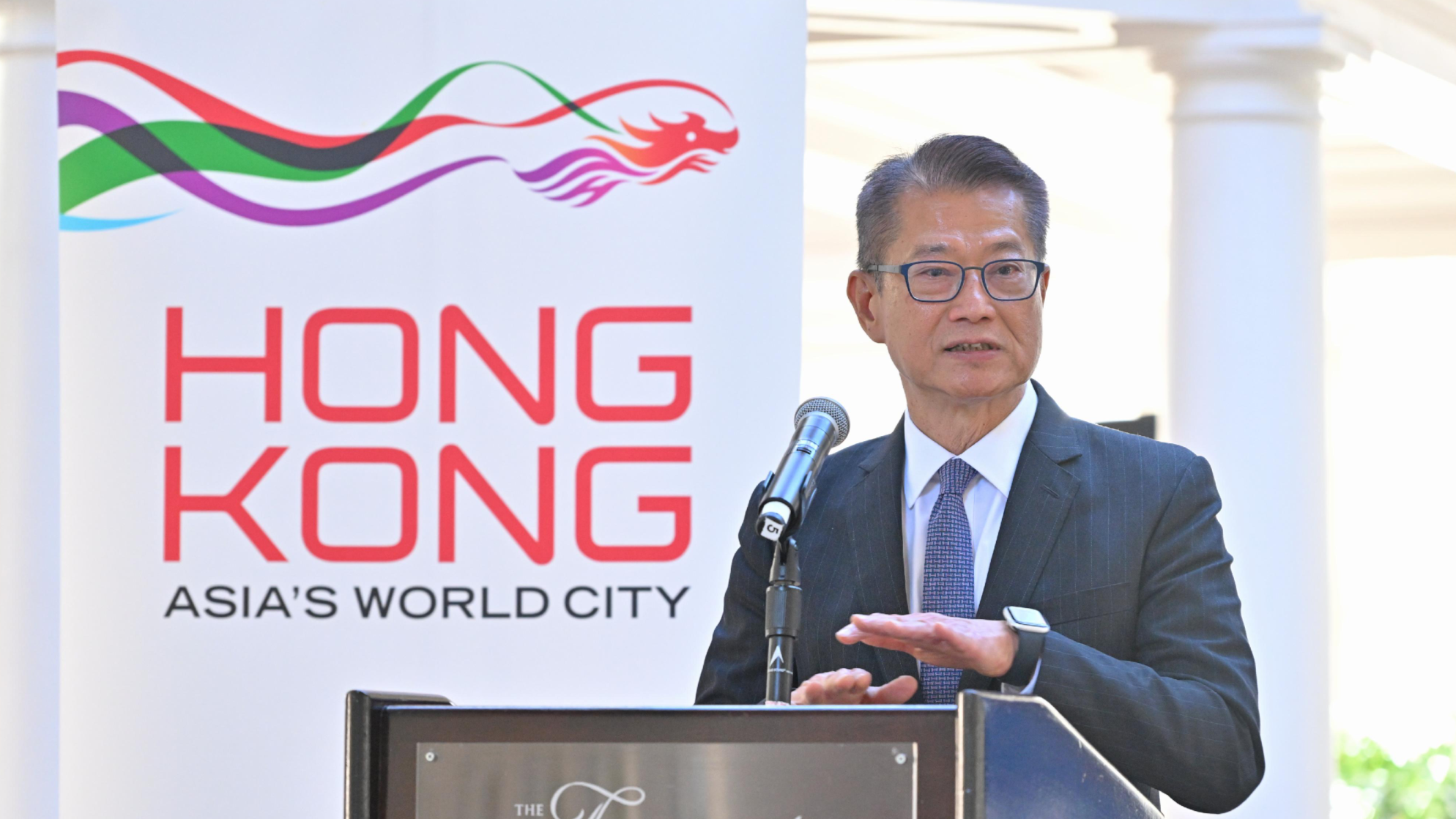
With Hong Kong’s institutional advantages of “one country, two systems” as a super connector and super-value-added contributor amid the current international landscape, the city must forge breakthroughs bravely, innovate boldly, develop new networks, and establish new connections to strengthen cooperation, Financial Secretary Paul Chan Po Mo-po said in his Sunday blog.
This will also enable Hong Kong to contribute more to regional and global connectivity and prosperity, Chan said on his return from a visit to the United States where he attended the annual meetings of the International Monetary Fund and the World Bank Group as a member of the nation’s delegation.
In New York, the finance chief met with leaders in the financial sector, prominent business representatives and think-tank figures to brief them on the latest developments and business environment in the special administrative region.
READ MORE: Chan: Continued capital inflows show investors’ confidence in Hong Kong
“Many of our US business partners said the Chinese mainland’s leapfrog development in innovation and technology has led them to reassess our country’s strength in the I&T industry,” he said.
“Biomedicine has emerged as a key area in which both sides can mull expanding collaboration. At the same time, US businesses hope to use Hong Kong’s institutional framework and market environment that they are familiar with, as a starting point and springboard to explore the mainland and Asian markets and seek new opportunities for collaboration.”
At luncheons and roundtable meetings with the business community, Chan briefed participants on Hong Kong’s latest economic situation and future development directions, to consolidate the foundation for further cooperation between the SAR and the US in trade and finance.
Areas for exchange include Hong Kong’s efforts to promote financial and I&T development, facilitate regional integration of production and supply chains, attract enterprises and talents, accelerate the development of the Northern Metropolis, and promote industrial collaboration in the Guangdong-Hong Kong-Macao Greater Bay Area.
Business leaders and think tanks in the US generally believe that maintaining a stable relationship between China and the US not only benefits both countries’ development, but is also crucial to the future of the world economy.
According to Chan, participants at the IMF and World Bank Group meetings are worried about the global economic outlook amid persistent geopolitical risks and escalating tariff wars.
“The IMF has revised its global economic growth forecast for this year to 3.2 percent — 0.1 percentage point lower than last year — and projected a further slowdown to 3.1 percent next year. Globally, there is hope that the tense international trade situation will ease, allowing for a more stable global economic growth environment,” he said.
Another area of concern is the growing debt pressures facing many economies.
“For some advanced and emerging and developing economies with already high debt levels, they are facing increasing debt repayment burdens due to still-high interest rates. This has led to growing market concerns about the long-term sustainability of their public finances. Coupled with slowing economic growth, this will squeeze the scope for governments to increase public spending, impacting society and livelihoods,” Chan said.
READ MORE: HK FinTech Week to offer more opportunities for global businesses
Despite the challenges, the world economy has demonstrated a degree of resilience in the face of trade conflicts. At the same time, global industrial and supply chains are being restructured, and regional cooperation is strengthening.
“As the IMF indicates, Asian countries are adjusting their economic structures, expanding domestic demand, and strengthening intra-regional trade linkages to mitigate the impact of external shocks. In the medium and long term, economic integration in Asia will add an additional 1.4 percent to the region’s gross domestic product.
“In fact, Asia is expected to continue contributing the largest share of global growth this year and next year, reaching about 60 percent,” Chan said.
As for the rapid rise of digital assets in recent years, members of various economies recognize their rapidly expanding influence.
“Related blockchain technologies have numerous real-world applications, particularly in promoting intra-regional trade, as well as addressing cross-border settlement efficiency and pain points. Digital assets, such as stablecoins, hold considerable potential for development. However, there is also a consensus that greater international collaboration is needed to prudently manage the risks they pose to financial system stability,” he said.